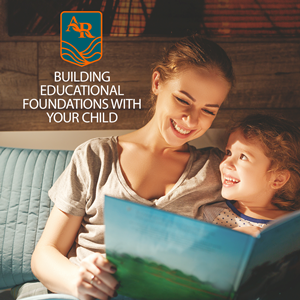
Building the foundations for education is an important part of early childhood. As children progress through school, they’ll continue to build upon those foundations day after day. Much like building a foundation for a home, building a foundation for your child’s education is critical to their strength, resilience, and long term success throughout life.
Research has identified seven key areas of social-emotional development that enable children to develop strong foundations for lifelong learning. Those seven areas include:
- Confidence
- Curiosity
- Intentionality
- Self-Control
- Relatedness
- Communication
- Cooperation
Let’s take a deeper look at each of these areas to discover how we can all help children build the foundations for success inside and .
Confidence
Having a healthy sense of confidence helps children feel more comfortable trying new tasks and subsequently expanding their knowledge base. It gives them a sense of security in knowing that even though they may fail, they can get back up and try again.
As you likely know from first hand experience, confidence isn’t built overnight. It takes a series of events and interactions with the outside world for anybody to begin developing confidence. Adults can help children build their own confidence by:
- Modeling confident behavior
- Sharing experiences about struggles you overcame that ultimately gave you confidence
- Encouraging persistence and brainstorm ideas to overcome obstacles
- Celebrating your child’s successes and achievements.
All of these things help children understand that setbacks are normal but they have the power within themselves to overcome anything standing between them and their goal.
Curiosity
Curiosity is an important facet of learning that is fostered in Montessori classrooms. Children are encouraged to learn through their own natural inquiry, allowing them to follow their own unique path. Helping children spark their own curiosity is an excellent way to help them find their passions, identify their strengths, and test new ideas that can unlock endless learning potential.
Acting With Intention
When children learn how to act with intention, it helps build upon the other foundational pillar of confidence. It also encourages them to remain committed to completing tasks and gives them the ability to gain strength and wisdom in regards to their own self-determination. Helping children understand how to act with intention translates into making good decisions in the classroom and ultimately determining how to navigate their own unique path to success.
Self-Control
Self-control is a necessary skill for children to learn early in childhood as it’s one of the biggest factors when it comes to having healthy coping mechanisms, relationships, and study habits. It’s entirely normal for children to experience a vast array of emotions which is why it’s so important to help them understand how to navigate them in a healthy way. Here’s how you can help your child develop a healthy sense of self-control:
- Show them healthy ways to manage strong emotions (i.e., taking deep breaths, moving to a quiet space, etc.). Let them choose which method they want to try.
- Be a role model when it comes to self-control.
- Talk about feelings with your child.
- Give them a well-prepared environment where they are comfortable and not overwhelmed by stimuli.
Relatedness
Children are constantly learning about the world around them. They’re finding their role, understanding the roles of others, and developing their own sense of social and cultural norms. Giving your children the tools to learn how to relate to others will help them develop a sense of compassion and understanding. It also helps them make connections about how they can use their environment and resources to further their knowledge and achieve their goals. This ultimately lends itself to children becoming adults that can navigate social situations and interact appropriately with others.
Communication
Communication is critical. It allows children to develop deep relationships and enables them to express their own wants and needs. You can help your child develop communication skills, both verbal and non-verbal, by introducing new words often and avoid using “baby talk”. Choose books that introduce new ideas and challenge their vocabulary to reach new heights. Developing healthy communication enables children to advocate for their own needs inside and outside the classroom.
Cooperation
Developing good cooperation skills lends itself to healthy relationships with adults and peers. It gives children the capacity to work with others to achieve a common goal. Having good cooperation skills affords children a deeper understanding of their role in the world, how they relate to others, and how they can collaborate with others to expand their own skills and knowledge.
All of these pillars of the foundations for educational success continually develop over time. Helping your child understand these facets of development will help them become confident, independent, and compassionate learners for life.
